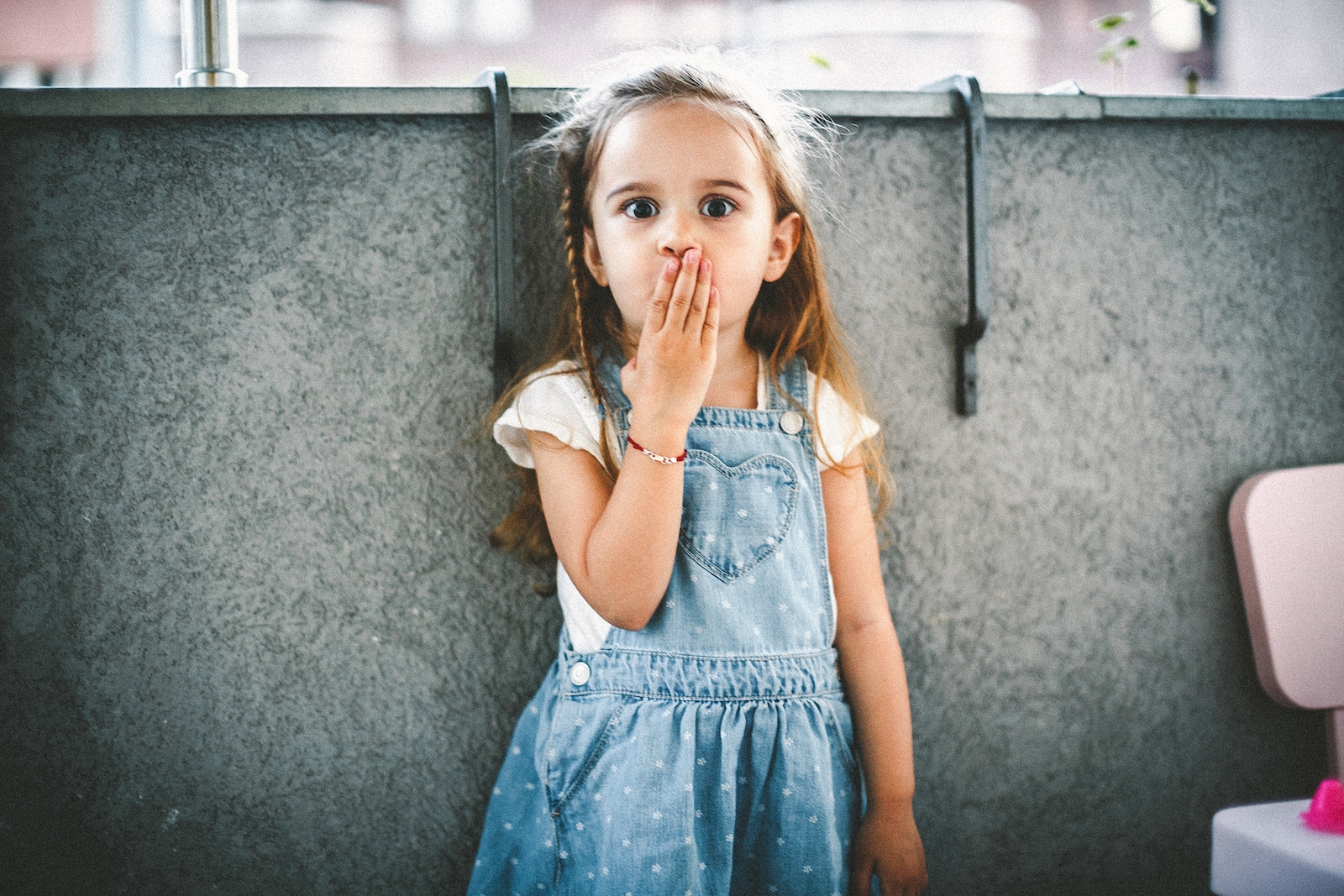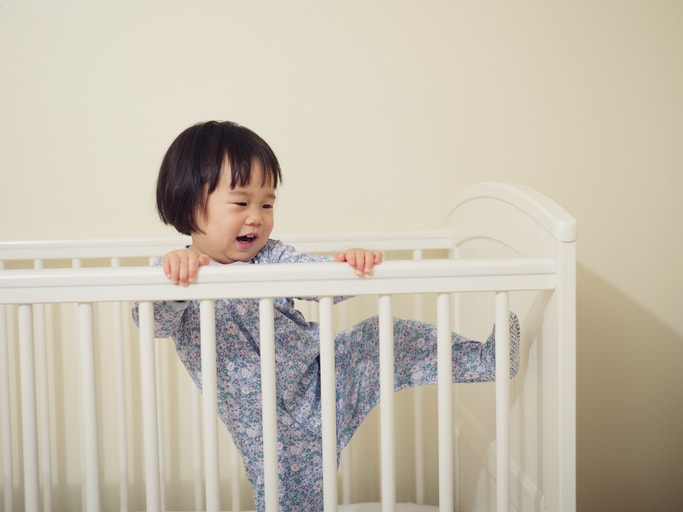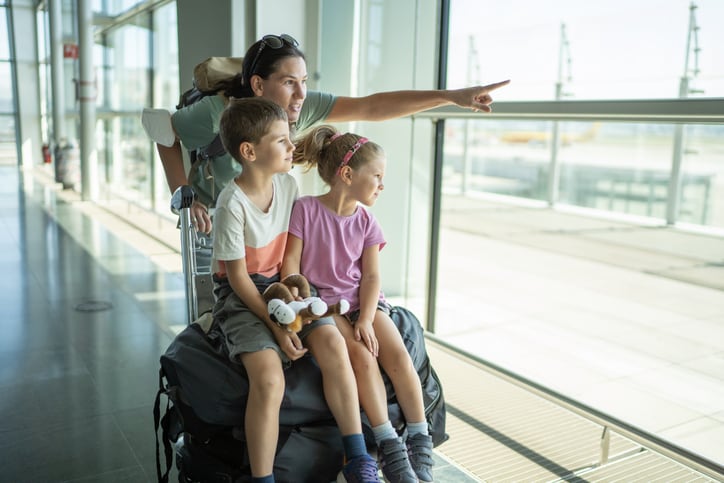Ask any parent or caregiver and they’ll tell you: The months (even the whole year) following potty training can be pretty touch and go, with errant pee and poop accidents making it clear you’re not completely out of the woods just yet. Annoying at the moment? Yes. Ultimately though, no biggie. But what about a 4- or 5-year-old having accidents (or even a 6- or 7-year-old)? Is it normal? While it may not be typical, it’s not as uncommon as you might think.
“A few things can trigger accidents after the ‘typical’ potty-training age,” says Dr. Kenneth Polin, a pediatrician at Lurie Children’s Primary Care, Town & Country Pediatrics in Skokie, Illinois. “When potty-trained kids start preschool, they may have issues being in a new bathroom. And with older kids, accidents can be a result of power struggles with their parents or caregivers.”
Wondering why your kiddo is having potty-training accidents long after they ditched their diapers? Here’s what the experts say.
Common causes of potty-training setbacks in 4-, 5- and 6-year-olds and older
“Potty-training setbacks can be caused by many different reasons in older kids,” notes Dr. Jean Moorjani, a pediatrician for Orlando Health Arnold Palmer Hospital for Children. “Sometimes if a child has been potty trained for a while and starts a new preschool or has a new routine, that can lead to temporary potty-training regression.”
Here are some of the psychological reasons for potty training regression, according to experts:
1. New school, child care or bathroom
More specifically, the actual bathrooms at preschools — particularly ones with toilets that automatically flush — can cause potty-trained kids to hold it, resulting in accidents later on. “Different bathrooms can really affect kids and result in urine or stool holding,” Polin notes. “The setup and cleanliness of school bathrooms, both which are different from what kids are used to at home, can be unsettling. And it isn’t at all uncommon for kids to be freaked out by toilets that automatically flush, which can cause some kids to worry they’re going to get sucked into the toilet.”
2. Other big life changes or changes to routine, including:
- New nanny or babysitter.
- Divorce.
- Moving.
- Serious illness or death of a family member.
- Birth of a new sibling.
“This regression can be normal, and I would recommend giving your child some time to adapt and adjust to their new routine or situation,” Moorjani says. “Parents or caregivers should do what they can to help ease and comfort the child, be very clear about expectations to continue toilet training and support them [in the process].”
“Parents or caregivers should do what they can to help ease and comfort the child, be very clear about expectations to continue toilet training and support them [in the process].”
— Dr. Jean Moorjani, pediatrician
3. Power conflict with parents
Another cause of accidents in the kindergarten age range, according to Polin, is conflict with parents. “Deciding not to poop, which in turn results in holding in urine, can be a way of getting back at mom and dad,” he says. “All day kids are told what to do, and this becomes something they can control. Unfortunately, this often backfires in the form of accidents, or worse, stomachaches.”
“All day kids are told what to do, and this becomes something they can control.”
— Dr. Kenneth Polin, pediatrician
4. Voiding dysfunction
Another potential cause of accidents is voiding dysfunction, Moorjani points out. The American Academy of Pediatrics (AAP) defines voiding dysfunction as “a pattern of problems with urination that’s not typical for a child’s age and stage of development.”
“Voiding dysfunction is a very common condition,” say Moorjani, “It can happen when a child takes infrequent trips to the bathroom to urinate, or, if a child has urinary urgency, feeling the sudden need to ‘hold it’ while rushing to the bathroom,” she explains.
Causes of voiding dysfunction, according to the AAP, fall in one of the following two categories:
- Functional. Voiding dysfunction, due to functional causes, affect about 1 in 5 kids and are rooted in things like stress, poor toilet-training habits, not drinking enough fluids to fill the bladder and being so caught up in play that trips to the bathroom are overlooked.
- Neurogenic. In these cases, voiding dysfunction is the byproduct of a condition that affects the spinal cord or brain and that’s been present since birth. Associated conditions, according to the AAP, are spina bifida, cerebral palsy or genetic disorders such as Williams Syndrome.
Join Care for free
5. Constipation
According to Moorjani, children with constipation “can also have difficulties with urine accidents.” The reason? A full colon can put pressure on the bladder, causing pee accidents.
Additionally, being constipated can also cause accidents with poop. It sounds counterintuitive, but as Polin explains, “when hard poop is causing a blockage in the rectum, softer feces may wind up leaking out, resulting in ‘accidents’ in kids’ underwear.”
A note about bed-wetting vs. potty accidents
It’s important to be aware that bed-wetting is not the same as daytime accidents. According to Polin, it isn’t uncommon for kids as old as 7 to regularly wet the bed, as there’s a genetic component. “Kids who wet the bed well past the age of being potty trained are often in the type of deep sleep that results in sleepwalking.” Put another way: Their brain isn’t sending their bladder the message that it needs to get up and pee.
“Another cause of bed-wetting may be that a child’s anti-diuretic hormone (ADH), which slows nighttime urine production, hasn’t yet matured,” he adds.
Regardless of the cause, Polin doesn’t recommend restricting water before bed if the child is thirsty, as it “won’t change anything.” “Remember, it’s not unusual,” he says. “Just be reassuring, and if kids keep leaking through pull-ups, use a maxi pad as well, which should absorb the liquid.”
What to do when potty accidents occur in older kids
For a 5-year-old (and older) having accidents, the key is getting to the root cause — while not blowing things out of proportion. And depending on the child, getting to the root cause may mean working with a pediatrician.
“When potty accidents are the result of power struggles, get kids involved in the cleaning process,” Polin suggests. “This shifts the burden and gives them some control, albeit not necessarily the control they were initially after. While this is happening, take a step back and don’t make a big deal of the situation.”
“When potty accidents are the result of power struggles, get kids involved in the cleaning process.”
— Dr. Ken Polin, pediatrician
What not to do when potty accidents occur in older kids
Also — and this is very important — never shame a child for having accidents or experiencing potty training regression. “The most important thing parents can remember is to not make your child feel bad or shameful if they have an accident,” Moorjani says. “If the accidents are a result of a life change, do what you can to help them adjust to any new routines or adjustments.”
When to call the doctor
Polin and Moorjani advise getting in touch with a child’s pediatrician for bathroom accidents if:
- Attempts to resolve external causes have been ineffective.
- The child has abdominal pain.
- The child is constipated.
- You suspect voiding dysfunction.
“Parents should call their pediatrician any time they are concerned about their child’s toilet training,” Moorjani says. “They’re there to answer any questions and provide guidance during setbacks.”






